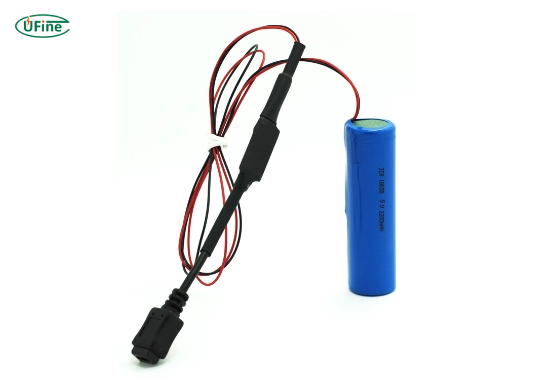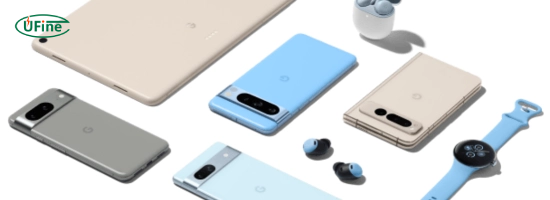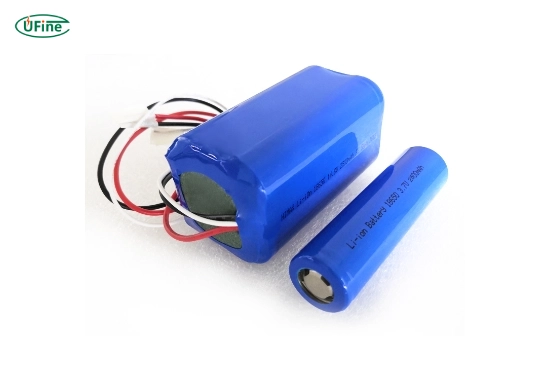In today’s technology-driven world, understanding the various types of batteries we use is essential. One of the most common and important types is the 5V lithium-ion battery. This rechargeable battery powers many of our daily devices, from smartphones to laptops. In this beginner’s guide, we will explore what a 5V lithium-ion battery is, how it works, its advantages, applications, and more.
Part 1. What is a 5V lithium-ion battery?
A 5V lithium-ion battery is a type of rechargeable battery that delivers a voltage of 5 volts. This specific voltage makes it suitable for many electronic devices that require stable power. The term “lithium-ion” refers to the battery’s chemical composition, which uses lithium ions to transfer energy between the anode and cathode during charging and discharging.
Key Characteristics:
- Voltage: The standard output voltage of 5V is ideal for many devices, ensuring they receive the necessary power without fluctuations.
- Rechargeability: Unlike disposable batteries, lithium-ion batteries can be recharged hundreds or thousands of times. This feature not only saves money but also reduces waste.
- Energy Density: Lithium-ion batteries have a high energy density, which means they can store more energy relative to their size and weight than other battery types.
Part 2. How does a 5V lithium-ion battery work?
To understand how a 5V lithium-ion battery operates, we need to look at its basic components and processes:
- Components: A typical lithium-ion battery consists of three main parts: an anode (usually made of graphite), a cathode (often made from lithium metal oxide), and an electrolyte that allows ions to move between the two electrodes.
- Charging Process: When you charge a lithium-ion battery, lithium ions move from the cathode to the anode through the electrolyte, storing energy in the battery.
- Discharging Process: When you use your device, the stored lithium ions flow back to the cathode, releasing energy that powers your device. You can repeat this cycle many times, allowing for efficient energy use.
Part 3. Advantages of using a 5V lithium-ion battery
There are several advantages to using a 5V lithium-ion battery:
- High Energy Efficiency: Manufacturers design these batteries to maximize energy output while minimizing waste. They provide consistent power until they nearly deplete.
- Lightweight Design: Lithium-ion batteries are much lighter than traditional batteries, making them ideal for portable devices like smartphones and tablets.
- Long Lifespan: With proper care and maintenance, these batteries can last for several years. Many users report their batteries lasting anywhere from 3 to 5 years before needing replacement.
- Fast Charging Capabilities: Many modern chargers can recharge these batteries quickly, often within a couple of hours, making them convenient for users who are always on the go.
Part 4. Common applications of 5V lithium-ion batteries
The versatility of 5V lithium-ion batteries allows them to be used in various applications:
- Smartphones and Tablets: Most portable electronic devices rely on these batteries due to their compact size and efficiency.
- Laptops: Many laptops use lithium-ion technology for longer battery life and lightweight design.
- Power Banks: Portable chargers often utilize 5V lithium-ion batteries to recharge devices while traveling or during outdoor activities.
- Wearable Technology: Smartwatches and fitness trackers benefit from these batteries’ small size and high energy density.
Part 5. Types of 5V lithium-ion batteries
Lithium-ion batteries come in several types, each designed for specific applications. Understanding these types can help you choose the right one for your needs:
- 18650 Batteries: People commonly use these cylindrical cells in laptops and high-drain devices like flashlights. They have a high capacity and power electric vehicles due to their efficiency.
- LiPo (Lithium Polymer) Batteries: These flat and flexible batteries are popular in drones and remote-controlled devices. They can be shaped to fit into tight spaces but require careful handling due to their sensitivity to overcharging.
- Prismatic Batteries: Often found in smartphones and tablets, these rectangular cells maximize space efficiency within devices. They offer good performance but may be more expensive than other types.
- Lithium Iron Phosphate (LiFePO4): This type is known for its safety and thermal stability. Due to its long lifespan and safety features, it’s commonly used in electric vehicles and stationary storage applications.
Each type has strengths and weaknesses, so making choices based on your needs is essential.
Understanding 5V Batteries: From Basics to Choosing the Right Charger
Part 6. Safety considerations for 5V lithium-ion batteries
While 5V lithium-ion batteries are generally safe when used correctly, there are significant safety considerations:
- Overcharging Risks: Using improper chargers can lead to overheating or even fires. Always use chargers that are compatible with your device’s specifications.
- Temperature Sensitivity: Lithium-ion batteries should be stored in relaxed environments, as extreme heat can damage or significantly reduce their lifespan.
- Physical Damage: Avoid puncturing or crushing these batteries as they may lead to dangerous chemical leaks or fires. Always handle with care.
Part 7. How to maintain your 5V lithium-ion battery?
Proper maintenance can extend the life of your battery significantly:
- Regular Charging: Avoid letting your battery fully discharge; instead, charge it regularly when it reaches around 20% capacity. This practice helps maintain optimal performance.
- Storage Conditions: Store your device in a cool, dry place when not in use. Extreme temperatures can degrade battery health over time.
- Cleaning Contacts: Keep the battery contacts clean by gently wiping them with a dry cloth. Dirty contacts can lead to inefficient charging cycles.
Part 8. Comparing different types of rechargeable batteries
When considering rechargeable options beyond just lithium-ion technology, it’s helpful to compare different types based on key characteristics such as energy density, lifespan, cost, and weight:
- Nickel-Metal Hydride (NiMH): These batteries have moderate energy density but are heavier than lithium-ion options. They typically last about 500 charge cycles before capacity diminishes significantly.
- Nickel-cadmium (NiCd): NiCd batteries are known for their durability. They have low energy density and are heavier than NiMH and lithium-ion options. They last around 1000 cycles but suffer from memory effect issues.
- Lead-Acid Batteries: Often used in automotive applications, lead-acid batteries are heavy and have low energy density but are very affordable upfront costs. Their lifespan is generally shorter than that of lithium-ion batteries.
- Lithium-Ion Batteries: As discussed earlier, they offer high energy density, lightweight design, long lifespan (up to 500 cycles), and fast charging capabilities.
Here’s a summary comparison table:
| Battery Type | Energy Density | Lifespan | Cost | Weight |
|---|---|---|---|---|
| Lithium-Ion | High | Up to 500 cycles | Moderate | Light |
| Nickel-Metal Hydride | Moderate | About 500 cycles | Low | Moderate |
| Nickel-Cadmium | Low | Up to 1000 cycles | Very Low | Heavy |
| Lead-Acid | Low | About 300 cycles | Low | Very Heavy |
This comparison highlights why many consumers prefer lithium-ion technology over other portable electronics.
Part 9. FAQs
-
What makes a 5V lithium-ion battery different from other types?
The main difference lies in its voltage output (5 volts) and high energy density compared to other rechargeable options like NiMH or NiCd batteries. -
What devices commonly use a 5V lithium-ion battery?
Devices like smartphones, tablets, laptops, power banks, and wearable technology typically utilize this type of battery due to its efficiency and compact size. -
How long does a 5V lithium-ion battery last?
With proper care, these batteries can last several years or up to 500 charge cycles before a significant capacity loss occurs. -
Can I use any charger with my 5V lithium-ion battery?
It’s crucial to use chargers designed for your device’s battery type to avoid overcharging or damaging it. -
What happens if I overcharge my lithium-ion battery?
Overcharging can lead to overheating and may damage the battery or create safety hazards such as fires or explosions.
Related Tags:
More Articles

How to Choose the Best Floor Scrubber Battery for Commercial Cleaning?
Selecting the ideal floor scrubber battery ensures a long runtime, rapid charging, and minimal maintenance for efficient commercial cleaning operations.
Battery for Blower vs Battery for Leaf Vacuum: Which One Should You Choose?
Battery for blower vs leaf vacuum—learn the key differences in power, fit, and runtime to choose the right battery for your outdoor tool needs.
How to Choose the Right Battery for Blower?
Choosing the right blower battery? Consider voltage, capacity, chemistry & usage. This guide helps match the best battery for peak performance.
How to Choose the Best Insulated Battery Box for Lithium Batteries?
Choosing the Best Insulated Battery Box for Lithium Batteries? Discover key factors such as size, material, and safety for optimal protection and performance.
7 Critical Elements on a Lithium Battery Shipping Label
What must be on a lithium battery shipping label? Learn 7 key elements to ensure safety, legal compliance, and correct handling across all transport modes.






